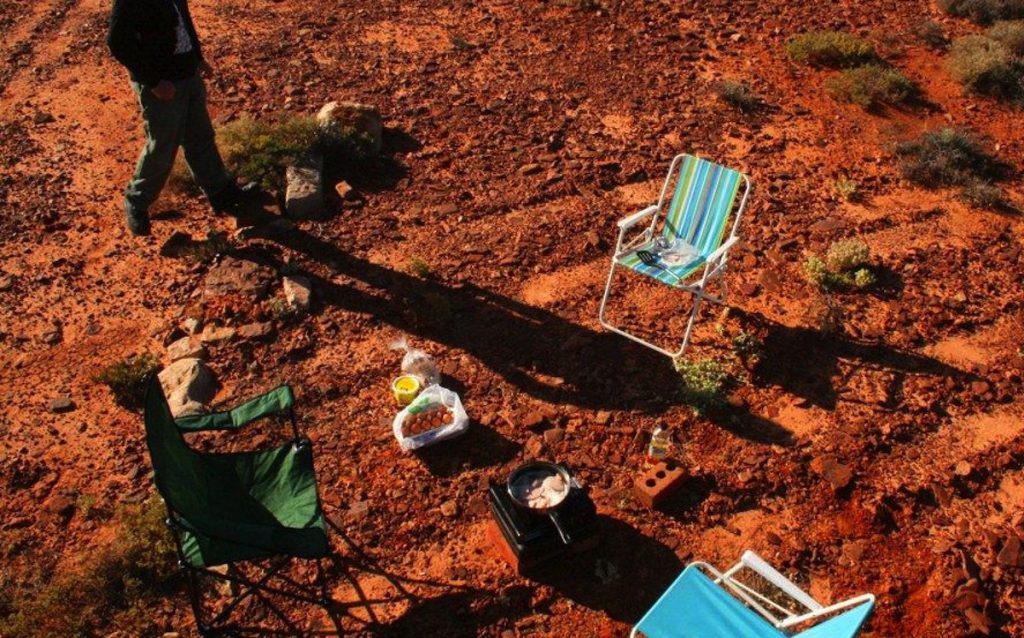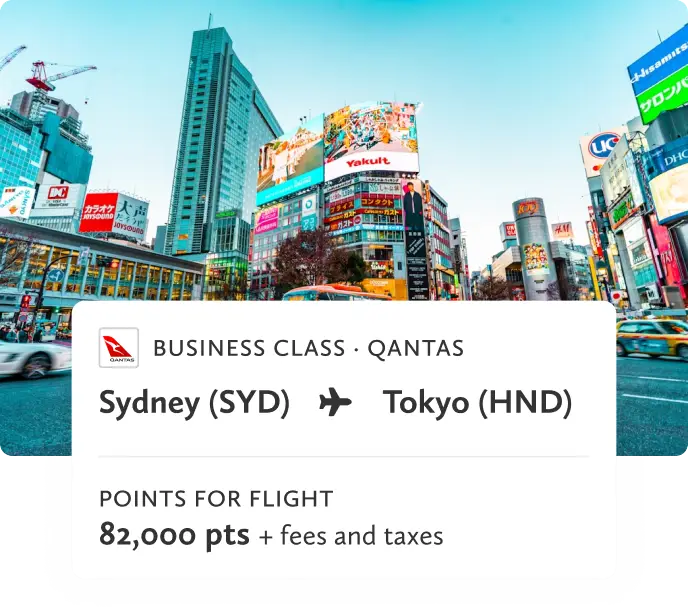About a year ago my partner and I started collecting frequent flyer points with the aim of funding our next holiday. Even though we don’t do a heap of flying, we’ve now managed to get enough points for two return flights to Europe.
We didn’t need to do anything extraordinary or unusual to get there, the key was just changing the way we do our ordinary spend. In short, our points came from three sources: credit cards, hotel bookings, and life – bills, insurance and other unavoidable expenses.
How I earned points from hotels
What is the best way to book a hotel to earn points? Well the answer will depend on your points strategy. For me it also depends on why I am travelling.
My strategy has been very focused on Qantas Points and so I’ll use Qantas Hotels where I can. I don’t travel often enough to get any tier benefits, but I am a member of of a few hotel rewards programs (for example I joined Hilton HHonors to get free wifi).
If I am travelling for work it means I have a set budget for accommodation, and so Qantas Hotels will get me the most points for that budget. This means that I don’t necessarily get the nicest hotel for my $, but when I’m travelling for work I rarely have time to do much in a hotel other than sleep.
If I’m travelling for leisure then I am generally more concerned with price and amenities. But I always prioritize cash savings over points earn, so Trivago is where I start. Once I work out which hotel I want and the best price for it, then I go about trying to earn points on the transaction too.
This means checking Qantas Hotels, Hotels.com and Flybuys Travel for the best price and points earn. Since they’ve introduced their price beat guarantee I’m going to start adding Jetstar Hotels to that list too, but that unfortunately doesn’t earn points.
Qantas Hotels often run promotions where you can earn 12 points per $1 spent. On a few occasions I’ve had bookings in place when these promotions were offered but Qantas wouldn’t give me the higher rate since the booking was already made.
However, since there was no cancellation fee, I could cancel and rebook the hotel to get the promotional rate. This can be a significant amount of points if you’ve got a long stay. But note, if you plan on doing this just double check the room still has availability and is still the same price before doing this.
Our approach to collecting points from credit cards
Of all the ways we collected points, credit cards were the simplest. Between sign up bonuses and earning from our ordinary spend, credit cards made up a large portion of our balance. But there is no shortage of cards out there, and picking the right one to hold onto is not straightforward. Read our guide on earning points through credit cards here.
Our approach was to try a few different cards before deciding which one to keep for the long term. That way we not only got to fiddle with all aspects of each card (such as the mobile apps), we also got to collect the sign up bonuses from each one we tried.
However, managing multiple credit cards can be a bit tricky, and if you don’t do it right you can end up getting stung. Making a simple mistake can easily cost you as much as your sign up bonus is worth!
In this article, I’ll run through a few pro tips that will help you manage your credit cards and make sure you come out on top for each one.
Tip 1 – Set up a direct debit to pay your bill
Setting up a direct debit is essential. Even if you think you are super organised (like me) you should think about setting up a direct debit, just in case. That way you can be sure your card will automatically be paid off the day it is due.
Didn’t realise there was a public holiday that would delay your payment? Accidentally reached your daily spend limit before remembering your card is due? All you need is one small mistake to get stung with interest charges, so direct debits are a must.
Tip 2 – Set calendar alerts for annual fees
If your card has an annual fee but has waived it for the first year, you should set up an alert to remind you when it is about to renew.
Even if you plan to keep the card long term, you should be aware of when it is going to renew because by then there may be more attractive offers on the market.
If you don’t remember which month you got the card, check the expiry date. Cards will usually renew and expire in the same month that they were opened.
If you are on the fence about renewing you should speak with your bank and they may offer you something to tip the scales. In the past, I have been offered cards with higher points earn rates if I renewed, or an extra year of no annual fee.
Tip 3 – Check bonus points eligibility carefully
If you’re looking for a signup bonus, you need to be sure you are eligible before you get the card. Banks won’t tell you if you have met the criteria when you join, so it is your responsibility to make sure you are eligible.
A key thing to keep in mind is that many banks are related, and having a credit card with one may make you ineligible for a signup bonus with another. For example if you have a credit card with St George this will usually make you ineligible for sign up bonuses with Westpac.
If in doubt, checking the Point Hacks guide for that credit card is a good place to start.
Tip 4 – Make sure you can meet minimum spend targets for any cards you apply for
When I first started collecting points there were two great credit card deals that I wanted to get. Unfortunately, both had a minimum spend in the first few months and I wasn’t sure I could make both of them.
I chose to stagger these credit card applications to make it easier to meet the minimum spend with our normal expenses. I looked at how long the credit card deals were for, and timed the applications accordingly.
Tip 5 – Use supplementary card holders
There are a few reasons that you might want a supplementary card, but some credit cards will charge you for them, so make sure you check that first.
Even if there is a small charge, it can still be worth it for simplicity and to consolidate your family’s spending into one account.
Another reason you might want additional cards is if your partner or family member is not likely to be eligible for a premium card, but you are. Using an additional card usually means you can both get the higher points earn and other benefits that comes with premium cards. Depending on which program you’re with, you might be able to transfer the points between you later.
Tip 6 – Pick your favourite and stick with it!
Sign up bonuses are a great short term boost to your points balance, but using a credit card over the long term can end up netting you more points.
Personally, the ease of using and understanding the online app was a big seller for me in deciding which card to stick with, but that may not be important to everyone. In terms of apps, here are some of the key things that stood out for me:
- NAB
- This app has just about everything you need, including tap and pay with NAB Pay.
- The only limitations for me were that you can’t add new payees or access your statements through the app (you have to do this through the browser).
- Westpac Banking
- The biggest downside is that there is no tap and pay facility, but this might end up being less important once the Banks settle their stouch with Android/Apple Pay.
- The best upside is that you can see your balance without having to log in. You can also access your statements through the app.
- ANZ GoMoney
- It’s not that this app is hard to use, it’s that it is not easy.
- The app will show you the outstanding balance and not how much is left available (as opposed to other apps which show both).
- On the plus side, ANZ is currently the only bank partnered with Android/Apple Pay so they have an advantage here
- Commonwealth Bank
- CommBank likes to think that their ‘award winning app’ is the best one out there… and I have to agree with them.
- CommBank has their own tap and pay function which has been available since early 2015. The balances are also easy to understand.
- The most unique aspect is that you can toggle the settings for each of your cards through the app, such as changing the daily limit or blocking/allowing international transactions.
- The app also gives you a direct link to CommBank Awards, where you will be automatically logged in (although this opens in a browser not the app).
- Another small bonus is that the app can also store any reward card for you, lightening your wallet. But, there are plenty of standalone apps that can do this too.
Once you have settled on your preferred card you can start channelling your spending to it and watch the points roll in.
Summing up
I found that I didn’t have to do anything extraordinary to earn enough points for our next trip – I got stuck into planning how I was going to use and earn our points, and then tried to optimise how we earned them accordingly.
Credit cards were the best way for me to earn points. Although you may not be able to easily change how much regular flying you do, you can change how you earn points through credit cards.
Choosing a card isn’t simple – you may end up loving it and making it your primary card, or you might decide to cancel it after you get your bonus – but either way, make sure you understand how the credit system works.
I found that trying a few different cards over the course of time was the best way for me to make sure I was using the the one that worked best for me – and we scored some bonus points along the way.







Just wondering if you get a credit card for the points is there a time frame you must keep the card to get the points?